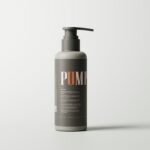When it comes to caring for your skin, especially after a treatment, one of the most crucial steps you can take is to avoid sun exposure. The sun’s ultraviolet (UV) rays can be particularly damaging to freshly treated skin, leading to complications such as hyperpigmentation or irritation. You may find that even a brief period in direct sunlight can cause discomfort or hinder the healing process.
Therefore, it’s essential to seek shade whenever possible and wear protective clothing if you must be outdoors. A wide-brimmed hat and sunglasses can provide additional protection, shielding your face and eyes from harmful rays. Moreover, applying a broad-spectrum sunscreen with a high SPF is non-negotiable.
Even on cloudy days, UV rays can penetrate through the clouds and affect your skin. You should make it a habit to apply sunscreen daily, not just during the summer months or when you plan to spend extended time outside. This proactive approach will help maintain the integrity of your skin and ensure that you achieve the best possible results from your treatment.
Remember, taking these precautions now will pay off in the long run, keeping your skin healthy and radiant.
Key Takeaways
- Avoid sun exposure to the treated area to prevent skin damage and pigmentation issues.
- Don’t pick or scratch the treated area to avoid infection and scarring.
- Avoid hot showers or baths to prevent irritation and inflammation of the treated skin.
- Don’t use harsh chemicals on the treated area to avoid further irritation and potential damage.
- Avoid excessive sweating to prevent infection and irritation of the treated skin.
Don’t Pick or Scratch the Treated Area
After undergoing a skin treatment, it’s natural to feel some itchiness or irritation in the affected area. However, you must resist the urge to pick or scratch at the treated skin. Doing so can lead to a host of problems, including infection, scarring, or even prolonged healing times.
You might think that scratching will provide relief, but in reality, it can exacerbate any discomfort and compromise the results of your treatment. Instead of giving in to the temptation, consider using a cold compress or soothing lotion to alleviate any irritation you may experience. Additionally, keeping your hands away from your face or the treated area is essential for maintaining hygiene.
Your hands carry bacteria that can easily transfer to your skin, increasing the risk of infection. If you find yourself frequently touching your face out of habit, try to be more mindful of this behavior. You could also keep your nails trimmed short to minimize any accidental scratching.
By taking these simple steps, you can help ensure that your skin heals properly and looks its best.
Avoid Hot Showers or Baths

After a skin treatment, you may be tempted to indulge in a long, hot shower or bath to relax and unwind. However, exposing your skin to high temperatures can be detrimental during the healing process. Hot water can strip away natural oils and lead to increased sensitivity, making your skin more prone to irritation and redness.
Instead of hot showers, consider opting for lukewarm water. This will help cleanse your skin without causing unnecessary stress or discomfort. In addition to temperature, the duration of your showers is also important.
Long showers can further dry out your skin and exacerbate any post-treatment sensitivity. Aim for shorter showers and limit your time in the water to help maintain your skin’s moisture balance. After showering, gently pat your skin dry with a soft towel rather than rubbing it vigorously.
This gentle approach will help preserve the integrity of your skin while promoting a more comfortable healing experience.
Don’t Use Harsh Chemicals on the Treated Area
| Treatment | Recommendation |
|---|---|
| Don’t Use Harsh Chemicals | Avoid using harsh chemicals on the treated area to prevent irritation and damage to the skin. |
Your skin is particularly vulnerable after treatment, making it essential to avoid harsh chemicals that could cause irritation or adverse reactions. Many common skincare products contain ingredients like alcohol, fragrances, or exfoliating agents that can be too aggressive for freshly treated skin. Instead of reaching for your usual products, consider switching to gentle, hydrating formulas specifically designed for sensitive skin.
Look for products labeled as hypoallergenic or free from parabens and sulfates. You should also pay attention to any new products you introduce into your skincare routine during this time. Even seemingly harmless items like makeup or moisturizers can contain irritating ingredients that may not be suitable for your post-treatment skin.
Take the time to read labels carefully and opt for products that prioritize soothing and nourishing properties. By being mindful of what you apply to your skin, you can help ensure a smoother recovery and maintain the results of your treatment.
Avoid Excessive Sweating
Engaging in intense physical activity can lead to excessive sweating, which is something you should avoid after undergoing a skin treatment. Sweat can irritate the treated area and may even introduce bacteria that could lead to infection. If you typically enjoy working out or participating in sports, consider taking a break or opting for gentler forms of exercise during your recovery period.
Activities like walking or yoga can keep you active without putting undue stress on your skin. In addition to avoiding strenuous workouts, it’s also wise to steer clear of saunas and steam rooms for a while. The heat and humidity in these environments can exacerbate any swelling or redness in the treated area.
Instead, focus on staying cool and hydrated by drinking plenty of water and spending time in air-conditioned spaces when possible.
Don’t Shave the Treated Area
Refrain from Shaving
If you’ve recently undergone a treatment in an area where you typically shave, it’s crucial to refrain from doing so until your skin has fully healed. Shaving can irritate sensitive skin and may lead to nicks or cuts that could become infected.
Explore Alternative Hair Removal Methods
Instead of reaching for your razor, consider alternative hair removal methods that are gentler on the skin during this time. If necessary, consult with a professional about safe options that won’t compromise your treatment results.
Safe Shaving Practices
When you do eventually return to shaving, take extra precautions to ensure a smooth experience. Use a clean razor and opt for a moisturizing shaving cream designed for sensitive skin. This will help minimize irritation and keep your skin looking its best.
Remember that patience is key; allowing your skin ample time to heal will ultimately yield better results in the long run.
Avoid Tight Clothing
The clothing you choose to wear after a treatment can significantly impact how well your skin heals. Tight clothing can cause friction against the treated area, leading to irritation and discomfort. Instead of opting for form-fitting garments, consider wearing loose-fitting clothing made from soft, breathable fabrics like cotton.
This will allow your skin to breathe while minimizing any potential irritation caused by rubbing against tight seams. Additionally, be mindful of any accessories that may come into contact with the treated area. For instance, if you’ve had a facial treatment, avoid wearing tight headbands or hats that could press against your skin.
The goal is to create an environment that promotes healing rather than one that exacerbates sensitivity or discomfort. By choosing comfortable clothing options and being aware of how they interact with your skin, you can support a smoother recovery process.
Don’t Use Tanning Beds
In today’s world, achieving a sun-kissed glow often leads individuals to consider tanning beds as an option. However, if you’ve recently undergone a skin treatment, using tanning beds is one practice you should avoid at all costs. The intense UV radiation emitted by tanning beds can cause significant damage to already sensitive skin and may lead to complications such as burns or prolonged healing times.
Instead of resorting to tanning beds for color, consider safer alternatives like self-tanners or bronzers that won’t harm your skin’s health. These products allow you to achieve a sun-kissed look without exposing yourself to harmful UV rays. Additionally, embracing your natural skin tone during the healing process can be empowering; remember that healthy skin is always in style!
By prioritizing your skin’s well-being over temporary aesthetics, you’ll set yourself up for long-term success in maintaining its health and beauty. In conclusion, taking care of your skin after treatment requires diligence and mindfulness about various factors that could impact its healing process. By avoiding sun exposure, refraining from picking at treated areas, steering clear of hot showers and harsh chemicals, managing sweat levels, postponing shaving, choosing loose clothing, and avoiding tanning beds, you’re setting yourself up for optimal results.
Your commitment to following these guidelines will not only enhance the effectiveness of your treatment but also contribute to healthier and more radiant skin in the long run.
After undergoing laser hair removal, it is important to follow proper aftercare instructions to ensure the best results. One important aspect of aftercare is knowing what not to do. In a related article on InLaserHairRemoval.com, they discuss the don’ts of laser hair removal aftercare.
For more information on laser hair removal and aftercare tips, visit InLaserHairRemoval.com.
FAQs
What are some common aftercare don’ts for laser hair removal?
Some common aftercare don’ts for laser hair removal include avoiding sun exposure, hot showers, and using harsh skincare products on the treated area.
Why should I avoid sun exposure after laser hair removal?
Sun exposure can increase the risk of hyperpigmentation and skin damage after laser hair removal. It is important to protect the treated area from the sun by using sunscreen and covering up with clothing.
Why should I avoid hot showers after laser hair removal?
Hot showers can increase inflammation and irritation in the treated area, leading to discomfort and potential complications. It is recommended to take lukewarm showers instead to promote healing.
Why should I avoid using harsh skincare products on the treated area after laser hair removal?
Harsh skincare products, such as exfoliants and acids, can irritate the skin and interfere with the healing process after laser hair removal. It is best to use gentle, non-irritating skincare products on the treated area.







